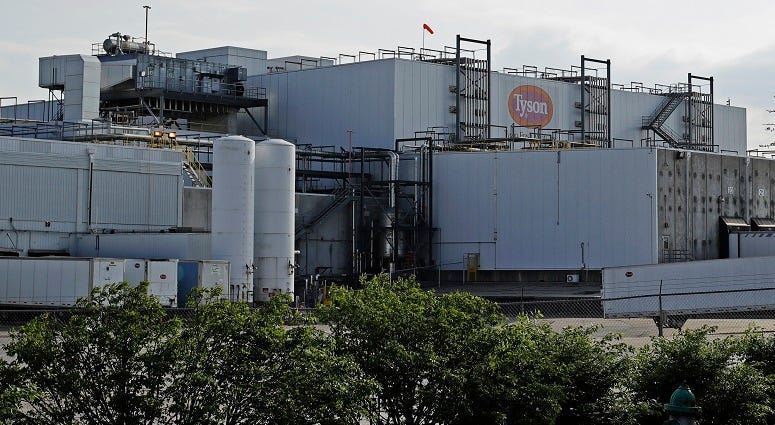
Federal recommendations meant to keep meatpacking workers safe as they return to plants that were shuttered by the coronavirus have little enforcement muscle behind them, fueling anxiety that working conditions could put employees' lives at risk.
Extensive guidance issued last month by the Occupational Safety and Health Administration and the Centers for Disease Control and Prevention recommends that meatpacking companies erect physical barriers, enforce social distancing and install more hand-sanitizing stations, among other steps. But the guidance is not mandatory.
“It’s like, ‘Here’s what we’d like you to do. But if you don’t want to do it, you don’t have to,’” said Mark Lauritsen, international vice president and director of the food processing and meatpacking division for the United Food and Commercial Workers International Union. OSHA’s general guidance plainly says the recommendations are advisory and “not a standard or regulation," and they create "no new legal obligations.”
But the guidance also says employers must follow a law known as the general duty clause, which requires companies to provide a workplace free of recognized hazards. Critics say that rule is unlikely to be enforced, especially after President Donald Trump signed an executive order in April aimed at keeping meat plants open.
Already, examples have emerged of questionable enforcement efforts and pressure to keeping plants running:
— In Kansas, the state softened its quarantine guidelines after industry executives pushed to allow potentially exposed employees to continue going to work, according to emails and text messages obtained by The Kansas City Star and The Wichita Eagle. The state had previously advised such employees to quarantine for two weeks, before conforming to the more lenient CDC guideline, which allows employees to continue working if they have no symptoms and use precautions. The move came after Tyson raised a concern with the state of rising worker absenteeism.
After Trump's executive order — developed with input from the industry — the Labor Department and OSHA said OSHA would use discretion and consider “good faith attempts” to follow safety recommendations. Employers would be given a chance to explain if some are not met. Agriculture Secretary Sonny Perdue made clear in letters earlier this month that the Department of Agriculture expected state and local officials to work with meat plants to keep them running. And he said any closed plants without a timetable to reopen had to submit protocols to the USDA.
The USDA did not respond to repeated requests to provide those company plans to the AP. When asked how guidelines would be enforced, a USDA spokesperson said enforcement was up to OSHA.
Major meatpackers JBS, Smithfield and Tyson have said worker safety is their highest priority. They provided the AP with summaries of their efforts to improve safety, but the plans themselves have not been made public. Tyson said because the temporary suspension of its operations was voluntary and the company was already meeting or exceeding federal guidance, it was not required to submit a reopening plan to the USDA.
Echoing language from the general duty clause, the agency also noted longstanding rules that require employers to provide a safe workplace.
“OSHA’s standards remain in place and enforceable, and they will continue to be as workers return to their workplaces,” a labor spokesperson said.
